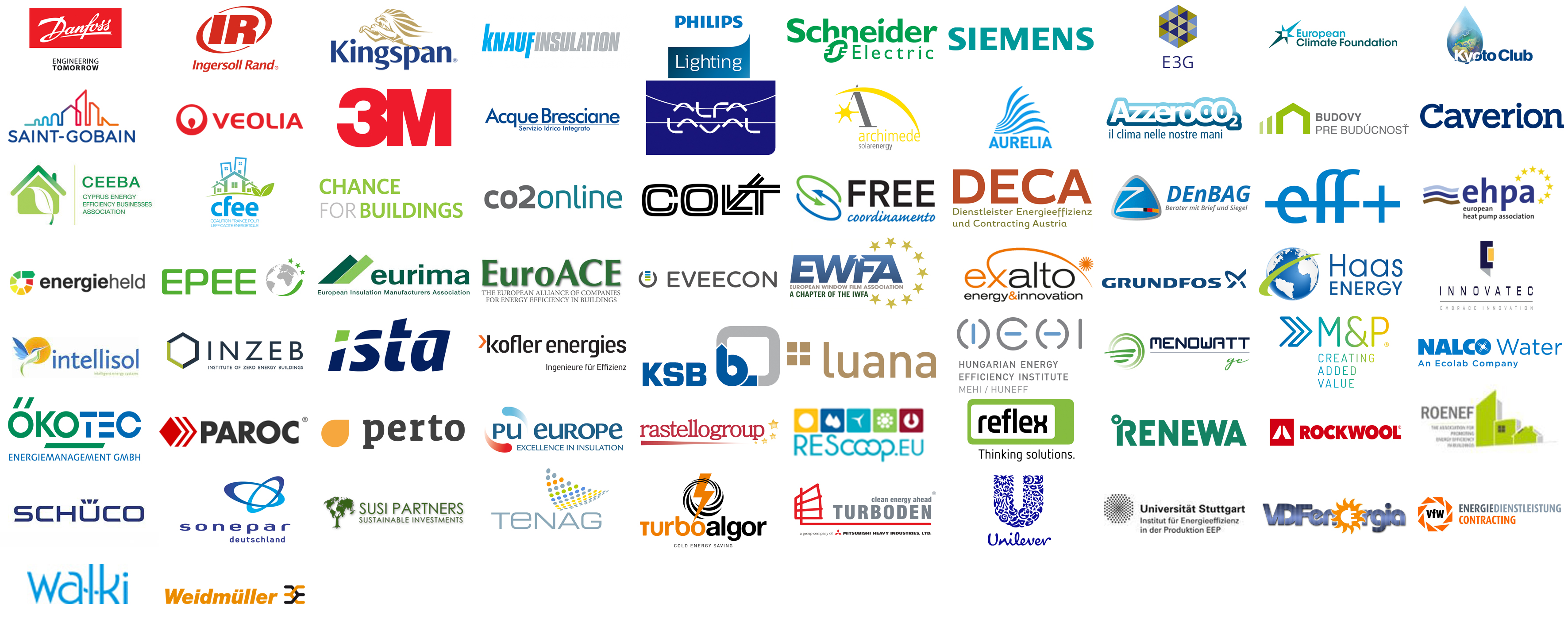Dear Minister,
We are writing to you on behalf of a group of 70+ leading businesses and associations concerning the ongoing negotiations on the Energy Efficiency Directive (EED) and Governance Regulation (GOV).
In recent years, the European Union has led by example in terms of its significant commitments in the framework of the Paris Agreement. The ongoing negotiations on the EED and GOV represent a unique opportunity to strengthen the role of the EU as a world leader in climate action. The EED and GOV will provide the essential policy framework to drive Europe’s energy transition, whilst embodying the principle of energy efficiency first as the chief and indispensable step to decarbonise our economies. In the European Union, 76% of the emission reductions needed to meet the Paris Agreement must and should be reached through energy efficiency improvements.
When correctly designed, such a framework has the potential to provide investors and businesses with much-needed predictability for investments, increased competitiveness, economic growth and millions of jobs across the continent. In addition, it can reduce consumers’ energy bills: in Germany and France, thanks to energy efficiency improvements, household energy bills were cut by an average of €330 per capita between 2000 and 2016 .
To achieve long-term climate and energy goals mutual understanding and strong cooperation between all EU Member States is needed. In this perspective, we welcome the close cooperation between France and Germany who have voluntarily taken on responsibility to help the EU as a whole to fulfill the ambition of the Paris Agreement, We welcome the recent joint statement of French and German environment ministers who confirmed the need to elaborate the necessary measures for higher emission reductions and move toward carbon neutrality by 2050.
We believe that the ongoing negotiations on EED and GOV are the first concrete opportunity for the EU Member States to show joint leadership towards carbon neutrality. Ahead of the Informal Energy Council that will take place on April 19-20, we call upon all Member States to work together with the aim to:
Energy Efficiency Directive
- Support the binding nature of the EU energy efficiency target to strengthen investor confidence;
- Increase the level of ambition of the energy saving target to a cost-effective 40% by 2030, expressed both in primary and final energy terms;
- Extend the 1.5% cumulative annual energy savings obligations beyond 2020 (with a 2050 perspective);
- Avoid double counting and loopholes that would undermine the effectiveness of Article 7 and of the whole Directive;
- Include transport energy consumption in the baseline when calculating savings.
Governance Regulation
- Support a transparent, robust and forward-looking governance compliant with the energy efficiency first principle to drive business decisions and guarantee an adequate implementation of the EU energy efficiency legislation;
- Strengthen energy efficiency governance by allowing the European Commission to check progress of individual Member States against a linear trajectory to ensure a steady flow of investment over the decade;
- Keep a strong emphasis on national, long-term, comparable low-carbon strategies. These should be drafted simultaneously with the national 2030 plans aiming at delivering a decarbonised society.
We remain at your disposal for any additional information that could be useful to prepare the next informal meeting of energy ministers and look forward to an ambitious outcome for the economic, social and environmental benefits of the entire European Union.
Yours sincerely,

[1] IEA.(2016). Energy, Climate Change and Environment: 2016 Insights. Retrieved from http://www.iea.org/publications/freepublications/publication/ECCE2016.pdf
[2] IEA (2018), Energy Efficiency Report, Retrieved from: http://www.iea.org/publications/freepublications/publication/Energy_Efficiency_2017.pdf
